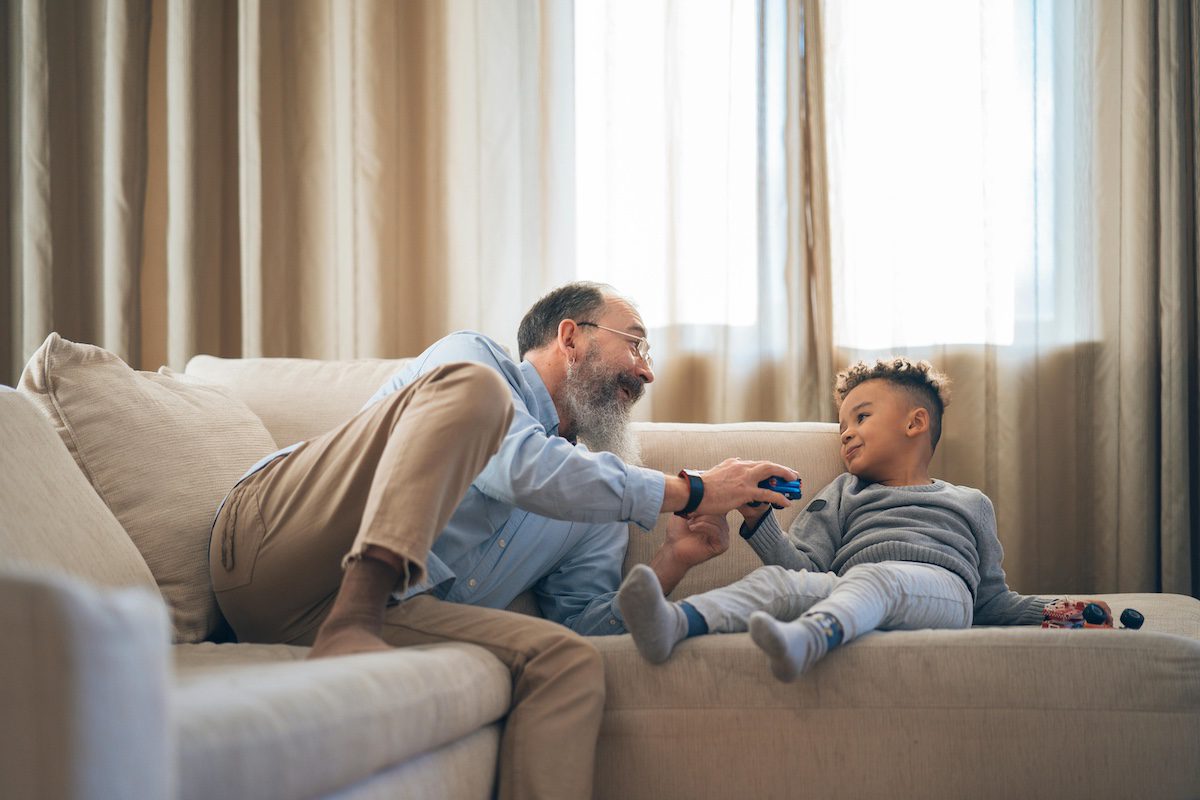Conversations about illness, dying, and hospice care are never easy, especially when they involve children. As adults, our instinct is often to shield the youngest members of the family from painful experiences.
But children are perceptive and sensitive; they notice when routines change, people become emotional, or loved ones grow ill. When a family member enters hospice care, it’s important to approach the topic with honesty, compassion, and age-appropriate language.
In this blog post, we will offer practical guidance on how to talk to children and grandchildren about hospice care, addressing their feelings, answering difficult questions, and providing reassurance during a confusing and emotional time.
Why These Conversations Matter
Children, regardless of age, are affected when a loved one is seriously ill or nearing the end of life. Avoiding or sugarcoating the reality can leave them feeling isolated, confused, or fearful.
Having open, honest discussions gives children permission to express their emotions, ask questions, and feel included in the family’s experience.
Talking openly about hospice care can also:
- Help children understand what to expect
- Reduce fear and misconceptions about death and dying
- Encourage emotional resilience and coping skills
- Strengthen family bonds during a difficult time
When handled thoughtfully, these conversations can provide a sense of security and comfort for children facing uncertainty.
When Is the Right Time to Talk?
There’s no perfect moment to have these conversations, but it’s generally helpful to speak with children as soon as a family member begins hospice care. Waiting too long can lead to confusion, misunderstandings, or children overhearing partial information that may cause fear.
Choose a calm, quiet time when you won’t be interrupted. Make sure you’re emotionally prepared, and approach the conversation with patience and empathy.
Tailoring the Conversation to the Child’s Age
Children process information differently depending on their age and developmental stage. Here’s how to adjust your approach:
Young Children (Ages 3-7)
Young children may not fully understand what death means, but they can grasp the concept of someone being very sick. Use simple, clear language and avoid euphemisms like “going to sleep” or “passed away,” which can cause confusion.
Example: “Grandpa is very sick, and the doctors can’t make him better. He’s staying at a special place called hospice, where people help him feel comfortable and loved. He won’t be getting better, but we can still spend time with him and tell him we love him.”
Encourage them to ask questions, and answer honestly in terms they can understand.
School-Aged Children (Ages 8-12)
At this age, children have a better understanding of illness and death. They might have specific questions about what hospice care means and what will happen next.
Tips:
- Be truthful about the seriousness of the illness
- Explain what hospice care is in simple terms: a way to keep someone comfortable at the end of life
- Encourage them to share their feelings and reassure them that it’s okay to feel sad, scared, or even angry
Example:
“The doctors have done everything they can, but Grandma’s body isn’t strong enough to get better. She’ll be staying at home with hospice helpers who will keep her comfortable and make sure she isn’t in pain.”
Teenagers (Ages 13+)
Teens are capable of understanding the full scope of hospice care and the reality of death. They may also struggle with complex emotions, including guilt, anger, or numbness.
Tips:
- Be direct and open, allowing them to ask tough questions
- Offer space for them to process their feelings in their own way
- Encourage involvement in caregiving tasks or memory-making activities if they’re interested
- Validate their emotions and remind them that everyone copes differently
Example:
“Dad’s illness is very serious, and the doctors can’t cure it. Hospice care will help keep him comfortable at home. We’re going to spend as much time together as we can, and it’s okay to feel however you’re feeling about it.”
Common Questions Children May Ask
Be prepared for a range of questions — some practical, some emotional. Here are common inquiries and how you might respond:
“Is Grandpa going to die?”
“Yes, his body is very tired and sick, and the doctors can’t make him better. We don’t know exactly when, but hospice is helping him feel peaceful and loved.”
“Will it hurt?”
“Hospice care makes sure he isn’t in pain and is as comfortable as possible.”
“Why can’t the doctors fix it?”
“Sometimes, even the best doctors and medicine can’t stop certain illnesses. When that happens, we focus on keeping the person comfortable.”
“What will happen after he dies?”
“Different families and people believe different things about what happens after someone dies. In our family, we believe…” (Share your personal or spiritual beliefs if appropriate.)
Ways to Involve Children in the Process
Including children in age-appropriate ways can help them feel valued and give them a sense of connection with their loved one. Ideas include:
- Making drawings, cards, or photo albums for the person in hospice
- Reading stories or singing songs during visits
- Sharing favorite memories or stories about the loved one
- Helping bake a favorite treat or pick out flowers for the room
- Participating in family rituals or prayer
Small acts of involvement offer children a healthy way to express love and say goodbye.
Supporting Their Emotions
Children, like adults, will experience a range of emotions throughout this process. Some may cry, while others may act out, withdraw, or ask repeated questions.
Ways to offer support:
- Validate their feelings: “It’s okay to be sad or mad.”
- Reassure them of your presence and support
- Provide physical comfort through hugs and closeness
- Maintain normal routines as much as possible to provide stability
- Encourage creative outlets like drawing, writing, or playing
If a child’s emotions seem overwhelming or persistent, consider speaking with a child therapist or counselor who specializes in grief support.
Final Thoughts
Talking to children and grandchildren about hospice care is one of the most loving and supportive acts you can offer during a difficult time. Open, honest conversations tailored to their age and understanding help ease fear, clear up confusion, and strengthen family bonds.
By providing truthful information, offering emotional support, and involving them in meaningful ways, you help children navigate grief in a healthy, compassionate way — and create space for love, memory-making, and connection, even in life’s hardest moments.






